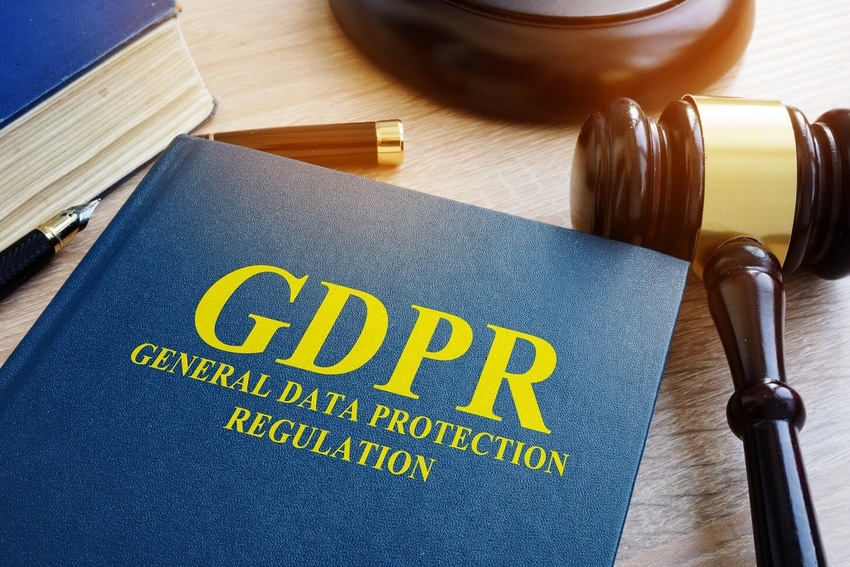Q&A: What Meta’s $400M+ EU Fine Means for Data Privacy and Ads
Regulators issue fines for privacy violations, limit Facebook’s and Instagram’s ad targeting across Europe -- how will that change the data and ad tech sectors?

Wielding the power of the EU General Data Protection Regulation (GDPR), the Data Protection Commission in Ireland hit Meta last week with some $414 million (390 million Euros) in fines for data privacy violations tied to targeted ads.
The commission asserted that European users of Facebook and Instagram were forced to agree to receive targeted ads based on data collected from their personal activity. In short, the commission had questioned whether users’ consent to such data collection had been rolled into the terms of service agreements for Meta’s apps.
On top of the fines, the commission called on Meta to stop requiring such data collection in order to use its apps and instead give users in Europe the choice to opt in.
Meta issued a statement in response to the commission’s decision and continued to assert the company had a legal basis for the way it processes ads in Europe: “We strongly believe our approach respects GDPR, and we’re therefore disappointed by these decisions and intend to appeal both the substance of the rulings and the fines.”
The statement went on to try and soothe advertisers, claiming the commission’s decisions did not prevent personalized ads on Meta’s platform.
The decision has the potential to not only rattle Meta’s use of data for ad targeting but opens the door for other companies to face such scrutiny in Europe and other jurisdictions with laws comparable to GDPR.
InformationWeek spoke with Meggie Giancola, senior vice president of sales solutions and strategy for marketing company Vericast, about what the commission’s decision may mean for the ways companies collect and use personal data to drive their marketing and advertising.
Does this put other companies, who may have similar data collection and ad models, in the line of fire for regulators now that they see big fines are being laid out?
That’s the thing that’s most fascinating, current state, around what’s going on. The rapid pace of which change is happening.
When you think about the adtech space and the martech space in general, there have been changes happening for many, many years but nothing as rapid of a pace as right now and what it’s resulting in is everyone has had to evolve. When you think about even the last three years, with cookies and everything, companies whether they’re advertisers or they’re platforms or media providers -- they’ve all had to evolve, but there’s been time, the luxury of time.
What’s new now is that at any point in time, a state, a federal governance, something changes and if you don’t have a focus as an advertiser or as a media provider, if you don’t have a focus or an ability to understand what it means to the digital ecosystem, whether it’s media buying, targeting, attribution -- you could be caught in a tricky situation. That’s what’s most fascinating, from my perspective, around what’s going on.
Has there been an attitude as these policies are being enacted of, “see what we can get away with for as long as we can get away with it?”
Everyone is in a similar boat right now of trying to make sense of things that are coming out from a legislation perspective, if there’s just inherent technological changes inside of the ecosystem. There’s a multitude of changes happening at a rapid pace. I think that it’s fair to say that a lot of people are working to innovate in accordance with these changes. There has been, if we look back even at the last three years with updates that Apple’s made.
A lot of what is transpiring is consumer-driven. It’s the consumer’s want and need, quite frankly, for a privatized engagement. Conversely, consumers also equally want personalized engagement. It’s such an interesting juxtaposition when you really think about what it means to the industry. They want personalized, but privatized content being delivered to them, particularly in digital mediums.
And the two are at odds when you think about the ad industry and how we go about targeting consumers, most thoughtfully and then delivering them that right message. The privatization component -- that’s where this privacy piece is so interesting. The ad industry in general, in its entire history, it’s an industry that is rooted in intelligence. It’s about intelligently finding that right consumer and then intelligently delivering them the right medium and message, whether it’s print, TV, broadcast, digital. That is the crux of this industry. When you think about now what’s happening in the consumer’s want and need for privacy but also personalized content, you think about addressability -- all the key hot topics inside the digital ecosystem today -- those two things are often at odds when you get down into the details of how to execute both. That is what we’re up against as an industry.

Meggie Giancola, Vericast
We’re up against, “How do we deliver personalized, meaningful messages, particularly to that Gen Z consumer who cares about brand trust and brand safety and engaging in a meaningful way with brands?” To get to that consumer behavior but, “Oh, by the way, I want to do it without you knowing anything about me.”
It’s an interesting world and what’s going to be critically important, is it’s the companies and the providers, whether they’re on the adtech side, the martech side, or they’re on the advertiser’s side. What’s going to be critically important are the companies that have the ability and the bandwidth to not only ingest what’s going on -- a piece of legislation is introduced to the state of Connecticut, as it was a few weeks ago -- then to be able to take that and say, “What does that mean to targeting and to media buying?”
What does that mean from a legality perspective, in terms of ensuring that that consumer’s information is being checked on all the boxes from a legal perspective. But then how do I take all of those regulations and still provide scale and intelligent reach and delivery to that consumer to hit that marketer’s goals and objectives?
From a Vericast perspective, that’s where we’ve been laser-focused -- being able to understand and read the tea leaves around what all this means. This means advertisers need to build their known, loyal base. As the ability to understand a digital impression and who’s behind that digital impression starts to go away, how do we understand if they’re the right person to reach?
Building those known, loyalty bases are critical; that first-party data world, advertisers have to be focused on that. Then as platform providers, from an adtech and martech perspective like Vericast, we have to be able to then -- all regulations considered -- be able to ingest that. Activate against that. Build lookalikes, respecting everything that’s going on to still get the scale to achieve marketing goals and ROI.
It’s about infrastructure of organizations, being able to understand, digest, and then quickly pivot and iterate on their roadmaps. And then it’s about being able to caveat and lean into these changes and leverage them to still provide optimal goals.
With policies coming into effect or have already gone into effect, and where it is a matter of giving individuals the option to opt in, is there some argument that most people just agree to opt in anyway?
That goes back to a couple of things. We’ve lived in an opt-out world from a consumer perspective. Now we’re transitioning and going to be living in an opt-in world. Even that opt-in world, when you think about your own consumer journey -- going to a website, having to click to accept cookies -- that’s been the way of the recent past. That’s going to change. We’re starting to see "come-forward value exchange." Meaning the need for an advertiser or brand to provide value back to consumers in exchange for their consent to capture them as a first-party data segment. That’s a new thing on the horizon.
Where before, you could just click “accept” and we’re good to go, and now you have that person on your own property, you can collect a certain amount of information -- those rules are changing. And that value exchange piece is going to be key in both the adtech and martech space. I need to provide you something in exchange. With that, I do think that we’ll see adoption rates of consenting and creating that consumer into that known loyalty base -- I do think that we’ll see that. It all circles back to the need to create a meaningful relationship with that consumer to get them to want to opt in.
We’re going to see things like creative and messaging, always important, these things are going to emerge with a certain level of importance in this new world so that you’re really speaking to these consumers, creating that meaningful relationship and giving them a strong reason to engage.
Where do things stand now in terms of policies and what they are requiring industry to do to achieve compliance? Is there a clunkiness now that may eventually be smoothed over in time?
I think we would all love to live in a world that feels more seamless, particularly over the last three years that we have experienced. The concept of change is constant. I do believe that change is the new normal. I don’t know that we’ll ever live, particularly inside of the digital ecosystem, in a world where change is not always rapid and constant. That’s why I love to go back to the consumer psychology, because I do find that the vast majority of times all the changes that we’re experiencing, whether they be technical, governmental, whatever they might be, they are more often than not derived from consumers’ asks, wants, needs, and behavior.
If we can truly understand what is changing the dynamics of consumer behavior and respect that that triggers so much of what happens inside of this broader ecosystem, that is a clear way of being able to understand what could be to come and how we think about evolving along with it. That’s Vericast’s current stance.
I do think despite all these changes and impacts they’re having on the ecosystem, certain things will level out and we will all adjust to the new ways of advertising inside of digital.
What to Read Next:
Privacy Debate for 2023: Can Data Collection Persist As Is?
California Data Privacy Law Nabs Sephora, Sets Stage for Future
About the Author(s)
You May Also Like







